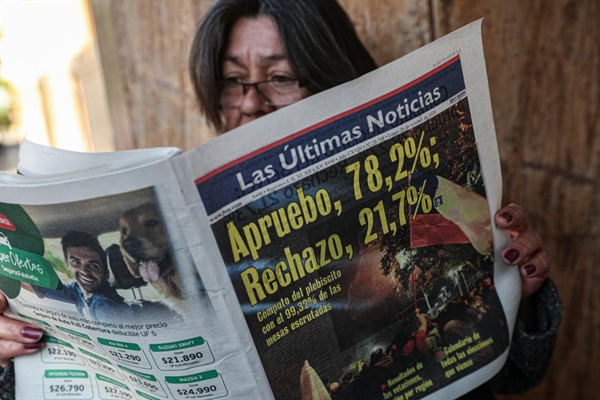SANTIAGO, Chile—It is no exaggeration to suggest that Chile’s constitutional referendum last month was its most important vote since the country transitioned to democracy in 1989. Voters faced two decisions: first, whether a new constitution should be written, and second, if the answer on the first question is affirmative, who should write it. An entirely new body could be elected for that purpose, or a mixed convention could be held, in which half the delegates would be current members of parliament.
Ahead of the Oct. 25 referendum, polls showed that a majority of Chileans wanted a new constitution, but nobody expected such a landslide: 78 percent voted in favor of changing the constitution through a specially elected constitutional convention. Chilean voters will go to the polls again next April to choose the members of that body.
The referendum’s result indicates that Chilean society is anything but polarized on this issue. Nevertheless, it is also true that the small minority who oppose constitutional change is concentrated among the political and economic elite. As soon as the results became available, a map showing the voting preferences in Santiago’s various neighborhoods went viral. It revealed that the three wealthiest parts of the capital city—Lo Barnechea, Las Condes and Vitacura—were the only ones in which a majority voted against constitutional reform. This outcome reinforced two well-documented realities of Chile: It is one of the most unequal societies in Latin America, and an important segment of its elites is completely detached from the everyday problems of regular people. The overwhelming vote in favor of a new constitution was thus a major defeat—and hopefully an eye-opener—for Chilean conservatives who have so far been unable to grasp that their society desperately needs a new social contract.

